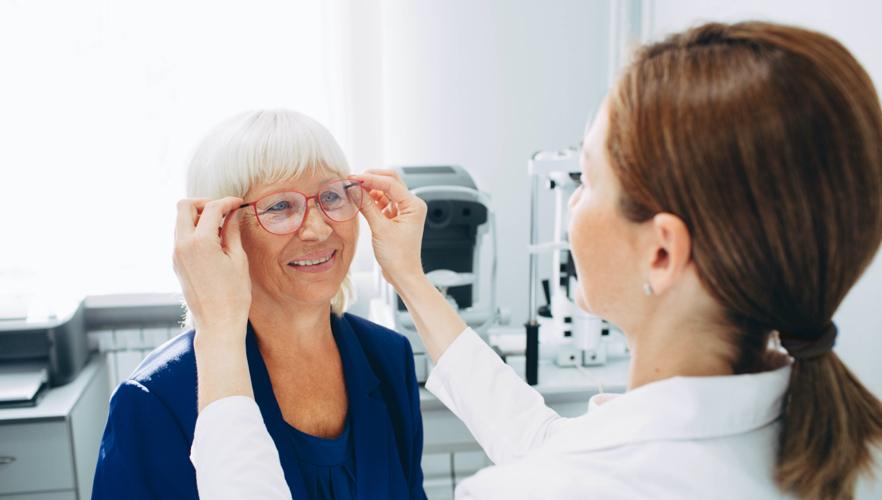Age affects vision and almost everyone needs glasses at some point in their life. Learn why from the eye care experts at Wills Eye Physicians Bailey Weber Wisner.
Why and how does age affect vision?
As you age, your eyes change and your risk of disease increases. The lens of your eye clouds naturally over time and becomes a cataract, meaning that anyone who lives long enough will get cataracts, and most people get cataract surgery at some point. Other conditions, such as glaucoma, occur because the natural processes of your body slow down with age. With glaucoma, your eyes’ drain can clog with different proteins that the body has difficulty processing. Conditions like diabetic retinopathy and macular degeneration are time-related processes that increase in prevalence with age. Fortunately, while vision changes with age for several reasons, treatments are available!
Is there a specific age where things get worse?
Variables like genetics, lifestyle and medical conditions can influence when conditions arise; however, many eye issues do have specific age thresholds. For example, as most people pass age 40, they start to develop presbyopia – trouble reading up close. Other problems, such as cataracts, become more common later on. Some people don’t develop cataracts until their eighties, but on average, they become common in a person’s early sixties and can start causing real vision problems 10-15 years later. The increased prevalence of vision problems with age is one of the reasons that it is a good idea to get regular eye exams and increase their frequency as you get older.
Will everyone eventually need glasses?
Not everyone will need to wear glasses all day as they age, but almost everyone will need glasses for some period of the day when performing certain tasks. Our eyes lose their ability to adjust their focus as we get older, leading to far or nearsightedness. Most people will need to wear glasses when performing certain tasks such as reading or driving. Other people may opt to get lens implants or monovision when they get cataract surgery, which can help compensate for the loss of focus adjustment and avoid the need for glasses.
